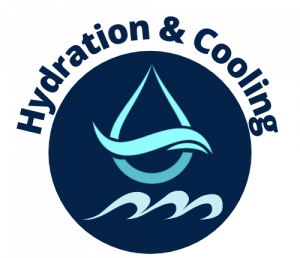Understanding Dehydration Risks in Football
Football is a physically demanding sport requiring sustained energy and focus. During a typical match, players can lose 2-3 liters of fluid through sweat, especially in hot conditions. Preventing dehydration is crucial not only for maintaining performance but also for player safety.
Studies show that even mild dehydration (1-2% body weight loss) can impair cognitive function, reduce endurance, and increase perceived exertion – all critical factors in football performance. More severe dehydration increases injury risk and can lead to heat-related illnesses.
Pre-Match Hydration Strategies
Effective hydration begins long before kickoff. Players should follow these guidelines:
- 24 Hours Before: Consume 5-7 ml of water per kg of body weight every 2-3 hours
- 4 Hours Before: Drink 5-7 ml/kg of a sports drink containing electrolytes
- 2 Hours Before: If urine is dark yellow, consume another 3-5 ml/kg
- 15 Minutes Before: Take small sips of water or sports drink (150-250 ml)
Pre-match hydration should be personalized based on individual sweat rates, weather conditions, and match timing. Morning matches may require additional attention to hydration due to overnight fluid loss.
During-Match Hydration Protocols
Maintaining hydration during a football match presents unique challenges due to limited stoppage time. Coaches should implement these strategies:
- Position water stations around the pitch for quick access during stoppages
- Utilize dedicated staff to distribute personalized hydration bottles
- Prepare electrolyte-enhanced beverages for halftime consumption
- Train players to recognize thirst signals and communicate hydration needs
The halftime break provides a critical hydration window. Players should consume 250-500 ml of fluid containing carbohydrates and electrolytes to replenish what’s lost during the first half.
For matches in extreme heat (above 30°C/86°F), consider implementing cooling strategies alongside hydration, including ice towels and cooling vests.
Essential Hydration Equipment
Proper equipment facilitates effective football hydration. Teams should invest in:
- Personalized Water Bottles: Color-coded or name-labeled to prevent cross-contamination
- Portable Hydration Stations: Mobile units that can be positioned strategically around training grounds
- Electrolyte Supplements: Both liquid and tablet forms for customized hydration solutions
- Hydration Testing Tools: Urine color charts and portable specific gravity refractometers
- Misting Fans: For extreme heat conditions to aid cooling alongside hydration
Modern football hydration equipment has evolved significantly, with top clubs implementing digital tracking systems that monitor individual player fluid intake and loss.
Post-Match Rehydration Protocols
Recovery begins immediately after the final whistle. Players should:
- Consume 150% of fluid lost (measured by body weight difference)
- Include sodium in post-match drinks to aid fluid retention
- Continue monitoring urine color for at least 6 hours post-match
- Incorporate fluid-rich foods into post-match meals
Rehydration should be viewed as the first step in recovery, working alongside proper nutrition and rest. Complete rehydration typically takes 4-24 hours depending on fluid deficit severity.
Developing Personalized Hydration Strategies
Each football player has unique hydration needs based on factors like body size, sweat rate, and electrolyte concentration. Teams should implement individualized approaches:
- Sweat Testing: Measure pre and post-training weight to determine sweat rate
- Electrolyte Analysis: Laboratory testing to identify specific electrolyte needs
- Hydration Scheduling: Develop personalized timelines for fluid consumption
- Flavor Preferences: Consider taste preferences to encourage adequate intake
Elite football clubs now employ sports scientists and nutritionists to develop highly specific hydration plans for each squad member, accounting for position demands and individual physiology.
Adapting Hydration for Special Conditions
Football matches occur in varying environments requiring adaptive hydration approaches:
Hot Weather Considerations
When temperatures exceed 30°C (86°F):
- Increase pre-hydration protocols by 25-50%
- Reduce carbohydrate concentration in drinks to 4-6% for faster absorption
- Implement pre-cooling strategies (cold towels, ice vests)
- Position additional water stations around the technical area
Cold Weather Adaptations
In temperatures below 5°C (41°F):
- Provide slightly warmed beverages (15-20°C/59-68°F)
- Focus on electrolyte content as cold-induced diuresis increases mineral loss
- Remind players to hydrate despite reduced thirst sensation
High Altitude Considerations
For matches above 1,500m (4,920ft):
- Increase fluid intake by approximately 500ml per day during acclimatization
- Monitor respiratory water loss which increases at altitude
- Maintain strict hydration monitoring as thirst sensation may be inadequate
Football teams should arrive at altitude locations 1-2 weeks before competition when possible to implement proper hydration acclimatization protocols.
Implementing a Team-Wide Hydration Culture
Creating a culture that prioritizes proper hydration requires education and consistency. Teams should:
- Conduct regular hydration workshops for players and support staff
- Display hydration guidelines prominently in training facilities
- Implement hydration monitoring as part of daily training routines
- Recognize and reward adherence to hydration protocols
When football players understand both the performance and health benefits of proper hydration, compliance increases significantly. Making hydration an integral part of team culture rather than an afterthought is key to preventing dehydration-related performance decline and health risks.
Football Hydration Resources
For more information about football-specific hydration strategies, consult:
- FIFA Medical Network hydration guidelines
- Sports medicine journals focusing on team sport hydration
- Professional football association nutritional resources
- Sports science institutes specializing in football performance
Remember that hydration science continues to evolve, and staying current with research ensures your team implements the most effective strategies for preventing dehydration during football matches.
